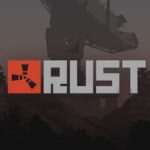Survival Machine is a concept and a genre that embodies the relentless pursuit of endurance against all odds. Whether viewed as a literal machine engineered for survival in extreme conditions or a metaphor for human resilience, the term Survival Machine captures the essence of adapting, evolving, and thriving amid adversity. This article delves deep into the multifaceted dimensions of Survival Machine—its history, technological evolution, practical applications, and cultural significance. Organized into ten comprehensive sections, this expert-level exploration covers everything from origins and design principles to pros and cons, concluding with a thoughtful evaluation and rating.
-
Origins of Survival Machines
The concept of survival machines dates back to early mechanical inventions aimed at withstanding harsh environments. Initially, survival machines were simple devices designed for specific tasks such as water purification, shelter construction, or food preservation. Over time, the term expanded to include complex systems like spacecraft, deep-sea submersibles, and advanced robotics built for exploration and rescue missions.
The rise of survival machines parallels humanity’s need to push boundaries—from deserts and jungles to outer space. Early examples include survival radios used in World War II, emergency beacons, and portable survival kits. The evolving definition reflects technological progress and growing understanding of environmental challenges.
-
Technological Evolution and Key Features
Modern survival machines incorporate cutting-edge technologies that enhance their functionality and reliability. These include artificial intelligence, sensor arrays, renewable energy sources, and modular design allowing adaptability to various environments. For instance, autonomous drones equipped with survival algorithms can locate and assist stranded individuals.
Key features often found in survival machines:
-
Robust structural integrity to withstand impact and extreme weather
-
Energy efficiency and alternative power generation (solar, kinetic)
-
Communication capabilities for distress signaling
-
Environmental sensing for hazard detection
-
Self-maintenance and repair functions
These features ensure the machine remains operational under adverse conditions, increasing the likelihood of survival for both the device and its human users.
-
Types of Survival Machines
Survival machines come in diverse forms depending on their intended use and environment. Some prominent types include:
-
Personal Survival Gear: Portable devices like multi-tools, water filters, and emergency shelters.
-
Vehicles: All-terrain vehicles and amphibious crafts designed for remote expeditions.
-
Robotics: Automated machines for search and rescue, firefighting, or hazardous material handling.
-
Spacecraft and Submersibles: Specialized machines for survival in extraterrestrial and underwater environments.
Each type addresses unique challenges but shares the core principle of maximizing survival probability.
-
Design Principles Behind Survival Machines
Effective survival machines are designed with several critical principles:
-
Redundancy: Multiple systems performing the same function to avoid total failure.
-
Simplicity: Easy operation and maintenance under stressful conditions.
-
Modularity: Components can be replaced or reconfigured based on mission needs.
-
Durability: Use of materials resistant to corrosion, wear, and impact.
-
Energy Autonomy: Ability to generate and conserve power without external supply.
These principles guide engineers in creating machines that not only survive but also support human life and activities effectively.
-
Survival Machines in Popular Culture and Media
Survival machines have captured imagination through movies, books, and video games. From post-apocalyptic robots to high-tech survival suits, these machines symbolize humanity’s struggle against nature and technology’s role as both savior and threat.
Films like "The Martian" showcase survival machines aiding human persistence on alien terrain. Video games such as "Subnautica" feature survival machines as tools and companions in hostile worlds. These representations influence public perception and inspire real-world innovation.
-
Practical Applications and Real-World Examples
Survival machines are invaluable in numerous fields:
-
Disaster Response: Robots navigating rubble to locate survivors.
-
Military Operations: Unmanned vehicles in hostile zones.
-
Space Exploration: Rovers and habitats on Mars and the Moon.
-
Environmental Monitoring: Autonomous devices tracking climate change effects.
Case studies highlight successes, such as the use of drones after earthquakes and underwater robots in oil spill containment, proving the essential role survival machines play today.
-
Challenges and Limitations
Despite advances, survival machines face significant hurdles:
-
Technical Complexity: High-tech systems may malfunction or require expertise.
-
Energy Constraints: Limited power sources can reduce operational time.
-
Environmental Extremes: Unexpected conditions may exceed design parameters.
-
Cost: Developing and deploying sophisticated machines can be expensive.
These limitations necessitate ongoing research to improve reliability, affordability, and user-friendliness.
-
Future Trends in Survival Machine Development
Looking forward, survival machines are expected to integrate more artificial intelligence, enabling autonomous decision-making and adaptability. Biomechanical hybrids blending organic and synthetic elements could emerge, enhancing resilience.
Technologies like nanomaterials for self-healing surfaces and advanced energy storage will further extend operational capabilities. Moreover, increased connectivity through satellite networks will improve coordination in emergencies.
-
Expert Rating and Conclusion
Survival machines represent a vital fusion of engineering, biology, and technology aimed at preserving life and expanding human potential. Their evolution reflects both our vulnerabilities and our ingenuity. While challenges remain, continued innovation promises more reliable and versatile machines capable of meeting future survival demands.
Rating Summary:
-
Innovation: 9/10
-
Practicality: 8/10
-
Reliability: 7.5/10
-
Accessibility: 7/10
-
Overall: 8/10
Conclusion
The concept of Survival Machine encapsulates humanity’s enduring quest to overcome adversity through technology and resilience. From primitive tools to intelligent autonomous systems, these machines embody our hope and determination to survive and thrive, no matter the challenges ahead. Embracing this evolution, society stands to benefit immensely, turning survival from mere chance into a calculated art form.
If you want to learn more about specific survival machines or the technology behind them, feel free to ask!

































